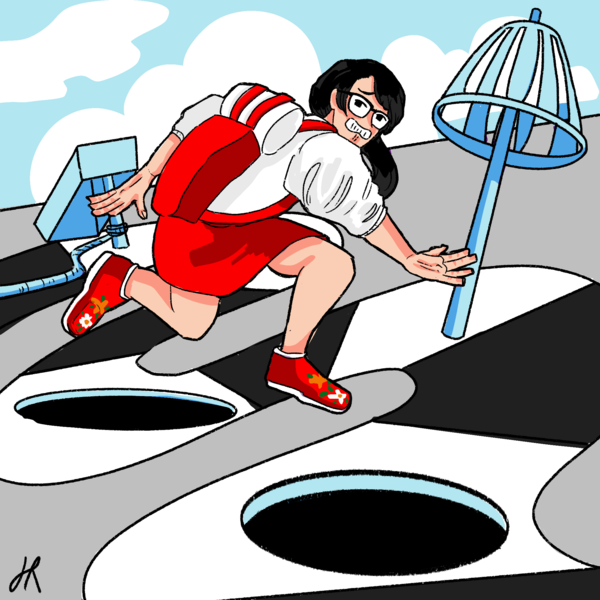You have a deadline in two hours and an exam in two weeks. You haven’t started the deadline yet, nor have you started studying. Because whenever you try to, you feel anxious and judge yourself for not being able to do the homework perfectly or understand the exam contents. You always do this; you should have planned better. Now you’ll barely pass, as always. The clock ticks and more tasks await, and you are paralyzed.

Is this train of thought familiar? It’s the exact inner monologue I’ve had as I was writing this article (which I ended up submitting late anyways). In my high school days, I was the type of student who always finished deadlines early and studied for exams weeks in advance. But college has turned me into a professional procrastinator. The deadline is the motivation, or so I tell myself. This narrative has become so ingrained in me for the last four years, and perhaps this perpetual “survival mode” caused the state of burnout I currently find myself in. It’s only recently that I’ve begun to think about this phenomenon more deeply.
The answers to why we tend to procrastinate partially lie in evolution. Our brain has evolved to efficiently respond to stressors and threats from the environment in three ways: fight, flight, or freeze. In the past, this would have been triggered by predators and dangers in the environment. In modern times, our ancient brain responds to ever-present deadlines and perceived failures. In a way, we can see procrastination as a modern flight response, allowing us to instinctively protect ourselves from failure by turning to more tempting alternatives. Chronic and unyielding stress and anxiety can increase our use of this survival mode and even hijack our cognitive functions. When you have a lot of tasks to finish, along with the external stress of this pandemic, you are not simply being lazy when you put off tasks; your brain is trying to protect you to get you through this difficult time.
Another habit that I noticed in myself when I was in the flight or freeze state was an inescapable loop of negative thoughts. Thoughts like “you should have done better” and “if you fail now you cannot succeed in the future” plagued me, giving me even less motivation and energy to overcome my depressed state. These thought patterns are called thinking traps or cognitive distortions. Giving them a name took some of their power away. These thoughts are lenses that distort reality in negative, inaccurate ways. There are about 15 thinking traps, and when I looked up what they were, I realized that I was stuck in a lot of them.
Throughout my life, I’ve set a certain (sometimes unattainable) standard for myself: perfectionistic thoughts. I have never been a fan of the saying “done is better than good”, thinking that I might as well give up if I can’t do things perfectly: all-or-nothing thinking. And whenever I do not reach this goal, I torture myself with “should haves” and “could haves”: tyrant thoughts. I tell myself that if I do not achieve certain things or perfect my academic life, then the future will not be as bright as I hope: catastrophic thinking. These traps often work in unison and make any situation seem worse than it actually is.
If you find yourself nodding along or relating to any of these thoughts, I can tell you that you are not alone in them. Although they might seem insurmountable right now, I learned in therapy that there is a way to break out of them. The first step is to identify and acknowledge the negative thought patterns that commonly run through your mind. Once you notice them, you can begin to challenge their validity. Ask yourself, “Is this thought valid?” and “What evidence or support do I have for this?” You can then try reframing the situation and find a different, more helpful way to look at it. And most importantly, give yourself a self-compassion break. Tell yourself the comforting words you would tell a friend going through the same thing.
It’s hard, and I sometimes slip back into thinking traps and bad procrastination habits, but it gets easier each time. My therapist’s constant reminders to not feel bad about “failing” to get back up are helpful; they reassure me that self-compassion and mental health is not another thing to try to be perfect about. One small step is more than enough. And if you need the words of a friend right now: Trust yourself. Just follow your instincts and passions and interests, wherever they may lead you. You’ve come this far, and although luck has been part of it, you are capable. You are good. As long as you trust yourself, you’ll be okay.

